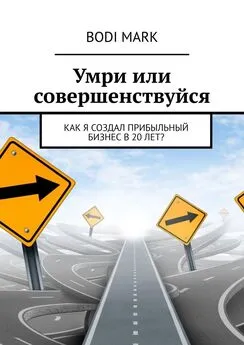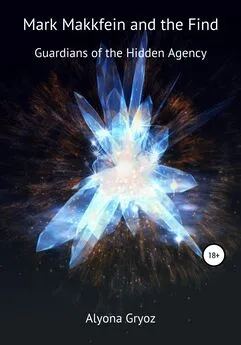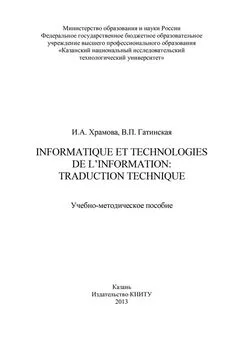Mark Mills - The Information Officer
- Название:The Information Officer
- Автор:
- Жанр:
- Издательство:неизвестно
- Год:неизвестен
- ISBN:нет данных
- Рейтинг:
- Избранное:Добавить в избранное
-
Отзывы:
-
Ваша оценка:
Mark Mills - The Information Officer краткое содержание
The Information Officer - читать онлайн бесплатно ознакомительный отрывок
Интервал:
Закладка:
“There—something you didn’t know about me.”
“Doesn’t make the grade. I want something more personal.”
Max thought on it. Then he told Elliott about the letter his mother had written him.
It was a common enough practice, certainly for women like his mother, whose narrow hips weren’t best suited for bringing babies into the world. The doctor had warned her that it would be a difficult birth, that she might have to choose between herself and the child. She had chosen Max, and she had survived long enough to hold him in her arms before the loss of blood had killed her. Sometimes he saw himself spread-eagled on her chest, worn out from all the effort, as she slowly slipped away into oblivion. That’s how it had been, apparently; his father had told him so.
His father hadn’t told him about the letter she’d written to him, her unborn child—well, not until Max was sixteen. He’d found it long before then, though, hidden in his father’s desk, biding its time. The desk had always held a deep fascination for him, with its inlaid mother-of-pearl decoration and its drawers and pigeonholes stuffed with detritus from the world of adults. It was an irresistible Aladdin’s cave for a young boy, and whenever the coast was clear, he would go and poke around in it.
He found the letter tucked away with some other correspondence in a leather portfolio. It wasn’t sealed, and at first he was unsure what he was reading. Not long after, when he was packed off to boarding school near Oxford, he took the letter with him, a guard against loneliness. It had worked. The disembodied voice of his mother—recorded in her distinctive handwriting, with its looping p’s and g’s and y’s—had blunted his sense of isolation. She’d been with him, watching over him.
It was a long letter, and in it she spelled out the story of her life, everything from her childhood in the countryside near Versailles to the comical first encounter with his father in the lobby of the apartment building in Paris. She went to great pains to say that he (although she used the neutral “you” throughout) was the product of a fine and fulsome love affair, and she signed off with a line of French that made no sense to him whatsoever.
Had his French teacher been some creaky old chap in a tweed jacket, he probably wouldn’t have sought him out and asked for a translation. Mademoiselle Leckford, as Lucinda was known, had offered an altogether different prospect. She was young and pretty, and all the boys were a little in love with her. Max copied out the line on a piece of paper, which he presented to her after a class: Tu aurais été ma vie
She scrutinized it a moment before asking, “Where does it come from?” Seeing that the question unsettled him, she quickly added, “You don’t have to say.”
But he told her anyway. It was good to have the excuse to tell someone about his mother and the letter she had written him, especially someone like Mademoiselle Leckford.
“It means …,” she said softly, peering down at him with a strange look in her eyes. “It means, ‘You would have been my life.’”
“Oh.”
She turned away, staring out the window. “Now run along, Chadwick.”
Only later did he learn that she had turned her back on him because she hadn’t wanted him to see the tears building in her eyes.
Of course, the pity felt by an adult for a ten-year-old boy could hardly be dignified with the name of friendship, but it had nonetheless been the start of something enduring and important for both of them.
“I still see her,” said Max, speaking of Lucinda. “And maybe I’m still a bit in love with her.”
“That’ll do me,” Elliott replied. “I like that. It’s a good story. Very revealing.”
“If you say so.”
“Oh, I do.”
Only when the plates were cleared away did they broach the subject they both knew they’d been avoiding, and it was Elliott who took the initiative.
“Recovered from the meeting yesterday?”
“Oh, that’s what it was. Seemed more like a court-martial to me.”
“From where I was sitting too.”
“Where exactly were you sitting?”
Elliott leaned back in his chair. “Put it this way: I can see both sides.”
“You think I can’t? You know what I did when Freddie first showed me the shoulder tab?”
“No, but I can guess. You thought about getting rid of it.”
Max was momentarily thrown by the response. “And what would you have done?”
“Same as you, probably—thought about it, changed my mind, snooped around a bit. The only difference is, I wouldn’t have got caught.”
“Well, bully for you.”
Elliott shrugged the comment aside. “I’m trained for that kind of thing. You’re an architect with a gift for writing the kind of upbeat bullshit that people want to hear at times like this.”
“If you’re trying to put me in my place, you’re doing a pretty good job—better than Colonel Gifford, even.”
“Gifford’s about as subtle as an anvil. I told him you couldn’t be strong-armed.”
“Well, he proved you wrong.”
“Did he? I doubt it. My guess is you’ve thought about nothing else since then … and what you’re going to do about it now.”
“What do you care?” said Max warily.
“You think I’m completely without principles?”
It was a typical play from Elliott, answering a question with a question. Nevertheless, Max reached into his hip pocket and pulled out a folded piece of paper. Elliott took it from him, angling it at the light from the candles.
Max had scribbled three questions on it: Where does he find them? Where did he take Carmela Cassar? Why does he do it? He had put a line through the last of these.
“Interesting,” said Elliott. “But why cross out the last one?”
“Because it’s imponderable. Who knows why he does it? Some sick urge buried away deep inside him.”
“Him?” asked Elliott. “Why not them?”
The thought hadn’t occurred to Max. “I just assumed …”
“Well, don’t. Wethern’s Law of Suspended Judgment: assumption is the mother of all screwups.” Elliott pointed to the third item on Max’s list. “For all you know, this is the key to it all. Don’t dismiss it.”
“I don’t understand.”
“Jeez, your ignorance is refreshing. I’m saying, what if he’s doing it for reasons other than self-gratification? What if he’s looking to destabilize the situation here? What if he’s working for the enemy and the whole thing is one big setup, all part of a plan to turn the Maltese against you, to break the special relationship?”
“Now you’re sounding like Ralph. He sees spies and fifth columnists everywhere.”
“Ralph is right to be on his guard. They are here. I can tell you that for nothing.”
It was a big statement, and one that raised more questions, but Max tried to remain focused on the issue.
“Freddie said there was evidence of sexual interference.”
“Ah …”
“So either this person—or persons—takes his job very seriously, or he’s getting some kind of pleasure from it.”
“Maybe both.”
“Now you’re reaching.”
“It’s possible, though.”
“Anything’s possible under what’s-his-name’s rule. It’s okay to make assumptions if they’re based on evidence.”
“What evidence? One trip to the sub base?” Elliott paused to allow his words to sink in. “I called Tommy Ravilious this afternoon. Don’t worry, I played my cards close. He still thinks the sun shines out of your skinny fundament.”
“Thank God for that. I can sleep easy tonight.”
“I don’t know,” said Elliott, glancing up at the cloudless sky. “That’s a ‘bomber’s moon.’ I wouldn’t bank on any of us sleeping easy tonight.” Looking back at Max, he asked, “So? Do the dates match with when the Upstanding was in port?”
“Of course. That’s not the sort of slip an enemy agent would make.”
Elliott regarded him with a look that hovered on the fringes of disappointment. “I’ve got to say, I’m surprised at your skepticism.”
“I don’t like to leap to assumptions.”
“Touché,” said Elliott with a little nod. “But maybe they’re more than just assumptions. Maybe I know more than I’m letting on.”
Max swirled the wine in his glass, staring at it, pensive.
“I think I can see what you’re doing,” Max said eventually.
“Enlighten me.”
“It’s complicated.”
“So boil it down.”
Colonel Gifford’s threats might not have worked, but if Max could be made to believe there were other factors at play, things far beyond his understanding, then maybe that would persuade him to back off, especially if he thought that by taking the matter further he would only be playing into the enemy’s hands, serving their nefarious cause. Elliott was simply finishing the job that Gifford had started.
Elliott listened attentively to the theory before announcing, “You’re wrong. As far as I’m concerned, what you get up to is your own business. But this”—he wagged the sheet of paper at Max—“is taking you nowhere fast. I mean, look at it. Where did he take Carmela Cassar? It’s the wrong question. Valetta’s a ghost town, so are the Three Cities, even Sliema and Gzira. Most of the people have left. He’s got options coming out of his ears. The question should be: How did he take her there?”
It was a good point. Gasoline was so scarce that motor vehicles had become a rare sight on the roads in the past month or more. Most servicemen were reduced to getting around on foot or on bicycle or in the horse-drawn gharries favored by the Maltese. These were open-sided carriages on four large sprung wheels—hardly an ideal mode of transport for moving a victim about.
“Okay,” said Max, “I’ll add it to the list.”
“You’re really set on seeing this through?”
“You think it’s a bad idea?”
“Yes, because they’ll be watching you closely.”
“Then you can stop me. All it takes is a quick word in the ear of your ginger-haired friend.”
“He’s not my friend. And I’d never do that to you.”
“I wouldn’t put it past you.”
“Hey, now I’m insulted.”
“Something tells me you’ll get over it.”
Elliott smiled. “Coffee?”
“Really?”
“Colombian or Sumatran?”
“Now I know you’re joking.”
But he wasn’t. The pantry off the bare stone kitchen was stocked with both. It also housed a range of other rarities: tinned fruits, several varieties of tea, a bowl of hens’ eggs, bottles of olive oil. There were even a couple of cured hams hanging from hooks.
“Bloody hell, Elliott, where did this lot come from?”
“I’ll show you.”
The pantry had been impressive, but it was nothing compared to the barn. Small wonder the doors were secured with a hefty padlock.
“Promise not to tell?” asked Elliott as he led Max inside. The light from the hurricane lamp cast wild shadows around the interior, revealing a storehouse of goods piled high in boxes. In one corner stood a stack of gleaming ten-gallon fuel canisters.
“Impressive, huh?”
“I’m not sure the military police would see it the same way.”
“We don’t get a lot of Red Caps out in these parts.”
Max strolled through the cases.
“I’m not a profiteer, if that’s what you’re thinking,” Elliott said.
“Just a hoarder?”
“Not even. This is work. I’m the sole representative of the United States government on the island, and sometimes I need to get things done. This lot counts for more than money right now.”
Читать дальшеИнтервал:
Закладка:
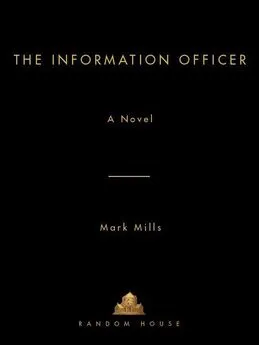

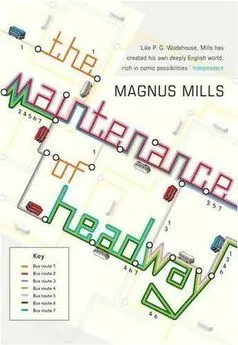

![Джеймс Купер - Пионеры, или У истоков Саскуиханны [The Pioneers, or The sources of the Susquehannah]](/books/1066142/dzhejms-kuper-pionery-ili-u-istokov-saskuihanny-t.webp)
